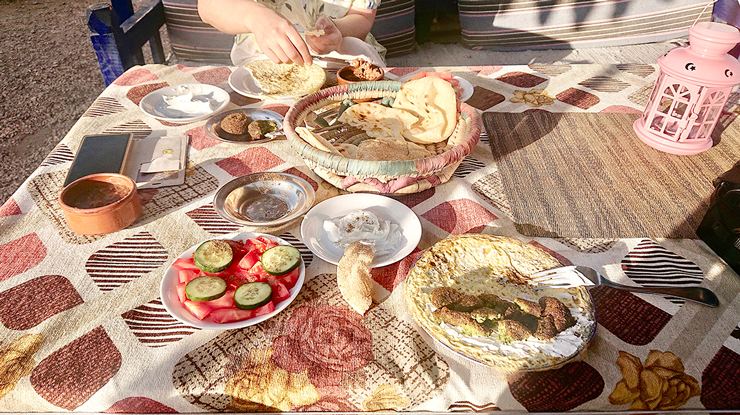The cultural shocks you could experience when visiting these nations
When traveling abroad, whether for vacation, visiting relatives, business, or even emigration, you are likely to encounter cultural differences that can, in some cases, be surprising.
The British experts in overseas property from YourOverseasHome.com have examined some cultural shocks you may experience during an overseas stay. From babies being left alone in strollers to the fact that using a fork to put food in your mouth is not well-received.
"When traveling to another country, it is essential to immerse yourself as much as possible in the local culture and traditions. This is not only respectful to the locals but also gives you a sense of what it's like to live in these countries. It's very interesting to see that things considered normal in the United Kingdom, such as giving tips or using a knife and fork to eat, may be frowned upon or even deemed offensive in other cultures," says Christopher Nye, Senior Content Editor at Your Overseas Home.
Here are seven cultural shocks you may encounter during your travels:
Your Overseas Home has compiled seven culture shocks that can occur when travelling abroad.
1. Norway – Leaving Babies in Strollers Outside
A trip to Norway (and other Scandinavian countries) can be a wonderful experience. But don't be surprised if you see babies alone in a pram there. Parents in Scandinavian countries believe that sleeping outside has many health benefits for their babies. The fresh air reduces the risk of catching a cold or flu from the indoor air.
Even in freezing weather, it is normal for parents, families and caregivers to leave babies outside and wrap them up warm in their prams.
2. Malaysia – Avoid Pointing with Your Index Finger!
Pointing your finger at something probably comes naturally to you. However, in Malaysia, this can be considered rude and offensive. When you want to point to an object, person or direction in Malaysia, use your thumb instead of your index finger.
3. Japan - tipping is considered to be rude
Many of us know that tipping in restaurants and bars is a positive gesture. In Japan, however, it is considered a rude gesture.
When you try to tip in Japan, most restaurants refuse completely, as they assume that by eating in a restaurant or drinking in a bar, you have already paid the restaurant and staff for good service.
4. Denmark - Meeting friends at the cemetery
If you want to meet friends, family or even colleagues in Denmark, don't be surprised if someone suggests meeting at a cemetery. Unlike in the UK, cemeteries in Denmark have become social institutions.
The cemeteries in Denmark are very well kept and locals flock there as soon as the weather gets warmer. If you are in Copenhagen, you may find some famous Danes buried in the cemeteries, including Hans Christian Andersen.
5. Thailand – Not Using the Fork for Eating
In many cultures, people learn to eat with a knife and fork from an early age. Many use the fork to push the food into the mouth. In Thailand, however, the fork is usually only used to put the food on the spoon. Once the food is on the spoon, you eat with the spoon and not with the fork.
6. Egypt - don't ask for salt when eating
When you go out to eat in Egypt, you should not ask for salt. Unlike in many Western countries, asking for salt can be taken as an insult. For locals, it means you don't like the taste of the food.
 Typical Egyptian breakfast. © Elsworth Frobisher, TheWorldPhotoTour.com
Typical Egyptian breakfast. © Elsworth Frobisher, TheWorldPhotoTour.com
7. China - the number 4 has a negative connotation
If you visit China or even live there, you will have difficulty finding the number 4 written anywhere. In China, the number 4 is avoided wherever possible. It is often not even included in the floor numbers of lifts!
You will also hardly find Chinese car licence plates ending in "4". This is because many believe that they bring bad luck. The reason for this cultural peculiarity is that in many Chinese languages and dialects the number 4 sounds similar to the word for death.

